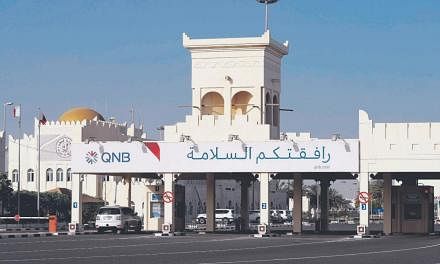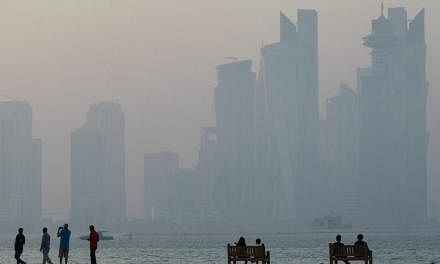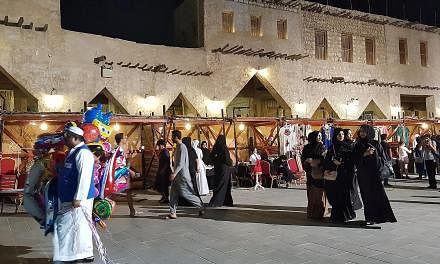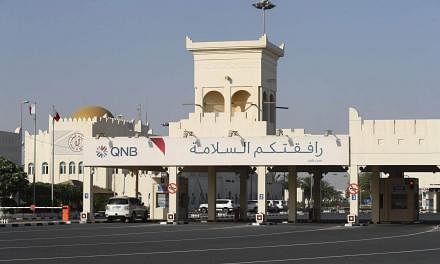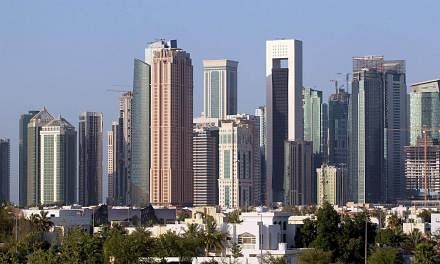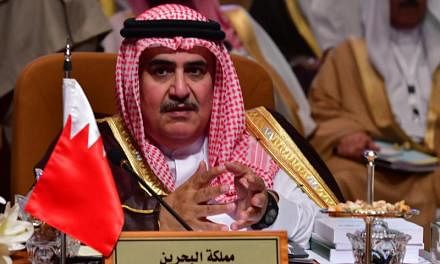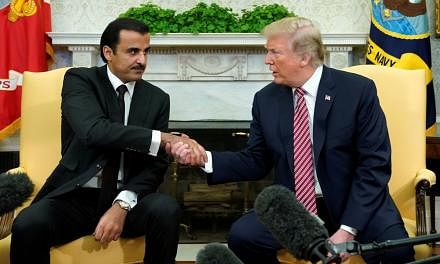ISTANBUL (Reuters) - US Secretary of State Rex Tillerson flew to the Gulf on Monday (July 10) for talks aimed at finding a breakthrough in the crisis over the cutoff of diplomatic and transport links with Qatar by Saudi Arabia and three regional allies.
The State Department said Tillerson, who forged extensive ties in the Gulf as CEO of ExxonMobil, will hold talks with leaders in Kuwait, Qatar and Saudi Arabia. He was in Istanbul for an international petroleum conference.
R.C. Hammond, a senior adviser to Tillerson, said he would explore ways to end a stalemate in the crisis following Qatar's rejection of 13 demands that Saudi Arabia, the UAE, Bahrain and Egypt issued as conditions for ending their sanctions.
"The trips to Saudi Arabia and Qatar are about the art of the possible," said Hammond, who added that the 13 demands "are done" and "are not worth revisiting as a package. Individually there are things in there that could work."
The demands included the closing of Al Jazeera, the Qatar-based pan-Arab television network, and a Turkish military base in Qatar.
Saudi Arabia and its backers, which accuse Al Jazeera of being a platform for extremists and an agent of interference in their affairs, have threatened further sanctions against the emirate. Al Jazeera denies the allegations.
Riyadh and its allies accuse Qatar of financing extremist groups and allying with Iran, the Gulf Arab states' regional foe. Qatar denies that it supports militant organizations, and many experts see the blockade as an attempt by Saudi Arabia to rein in Qatar's increasingly independent foreign policy.
TWO-WAY STREET
The crisis has hit travel, food imports to Qatar, ratcheted up tensions in the Gulf and sown confusion among businesses, while pushing Qatar closer to Iran and Turkey.
The United States worries the crisis could affect its military and counter-terrorism operations and increase the regional influence of Teheran, which has been supporting Qatar by allowing it to use air and sea links through its territory.
Qatar hosts Udeid Air Base, the largest US military facility in the Middle East, from which US-led coalition aircraft stage sorties against Islamic State in Iraq and Syria (ISIS).
US President Donald Trump has expressed support for Saudi Arabia in the dispute.
Hammond said it was critical that not only Qatar, but Riyadh and its allies take steps to halt any financial support flowing to extremists groups, especially following the defeat of ISIS in the northern Iraqi city of Mosul, Hammond said.
"It's a two-way street," he said. "There are no clean hands here."
"We want progress on terrorism financing. The president strongly believes that if0 you cut off financing, you cut off the ability of terror to take hold in new areas," Hammond said.
Moreover, he said, "the longer that this struggle is in place, the more opportunity there is for Iran. Our goal is to keep the United States safe and to keep our allies safe."
Tillerson met Turkish President Tayyip Erdogan on Sunday night for talks on regional security issues, Hammond said.
They discussed US support for Syrian Kurds fighting to oust Islamic State from the northeastern Syria city of Raqqa - a move which has angered Turkey - and the ceasefire in southern Syria between rebels and Russia-backed government forces that was arranged by the United States, Russia and Jordan, he said.

